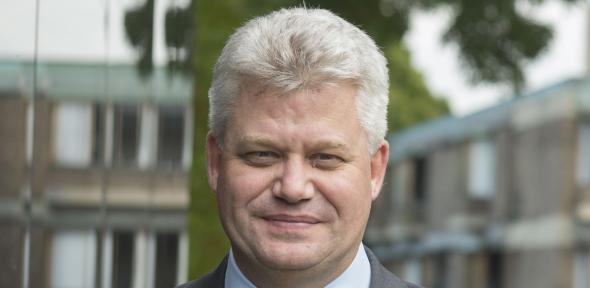
Submitted by Angela Walters on Fri, 26/01/2018 - 13:39
As Director of the new Centre for Digital Built Britain, based at the University of Cambridge, Professor Andy Neely, Pro-Vice-Chancellor for Enterprise and Business Relations, sets out the next stage of the Digital Built Britain programme.
The success of Digital Built Britain (DBB) to date provides strong foundations to develop and deliver the next phase of the UK programme. This will bring together industry, academia and government to progress the digital agenda that will transform infrastructure and construction.
The programme has helped to define, among other things, Building Information Modelling (BIM) at levels 1 and 2, and it has facilitated change in the way the public sector thinks about procuring construction and buildings. The impact has been significant and many countries across the world are looking to the UK as the arbiter of BIM and associated standards.
The Centre for Digital Built Britain (CDBB) will drive the next phase.
A key priority for the Centre is to continue and capitalise on the work of the DBB programme and the UK BIM Task Group. The Centre is bringing together industry, academia and government to explore how digital technologies will be used to improve the built environment and deliver value to the economy.
This is timely. The UK will spend around £600 billion over the next 10 years on improving the built environment by investing in public and private infrastructure. If we can make the design, construction and, importantly, the on-going operation of that infrastructure more efficient, there will be significant savings for the country.
The Centre will bring focus to what lies ahead and to consider how digital technology will shape the future construction landscape. There are important questions to be asked: what will new technologies enable in the design, build and operation of buildings in the years to come? How does that digital technology play out and where can it create value for society?
Like any complex programme, particularly one looking to the future, the challenges are partly around predicting what that future will hold and how technologies will evolve.
To succeed we have to bring people with us. Whether that is individuals or organisations, we need to engage people at large to think about the ways in which technologies can help both the persons that live and work inside the buildings and also the industry that is involved in construction. Bringing all those communities together so they see value in the future application of technology is crucial.
Involving industrial partners at the Centre and working closely with government is vital. We will be running an industrial consortium programme and are open to industrial members who are interested in working with us to explore the ways digital technologies will shape the future of the built environment.
"We deliberately want a very open system – a network of people involved in thinking about the future of digital built Britain"
While the Centre is housed at the University of Cambridge, we are open – and running calls and competitions – to involve academics from across the UK and internationally in different programmes, projects and initiatives. We deliberately want a very open system – a network of people involved in thinking about the future of digital built Britain.
This is a fascinating time to be involved in progressing the digital agenda for the sector; the confluence of different technologies and innovations opens up new and unprecedented opportunities to think very differently about the future of construction and infrastructure in the UK – and to be a world leader in this field.
To optimise this opportunity we need to work together and engage a wide variety of professionals, organisations and communities in open activity. We hope you will join us.
